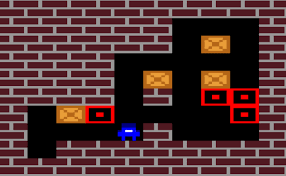Source: reenews.live
UCLA Children’s Hospital is introducing new artificial intelligence to improve mental health during treatment. Children can be challenging when admitted to inpatient treatment in pediatric hospitals. Now a new AI robot, Robin, is helping them deal with it.
Often, extended hospital stays can significantly affect mental health, especially in children separated from their parents for the first time in their lives. Now in American hospitals, a new artificial intelligence is being introduced that helps children feel better during their hospital stay.
Robin is an artificial intelligence created by the Armenian startup Expper Technologies, which was developed to help children in hospitals overcome loneliness and isolation.
The robot, at just under four feet tall and weighing almost 25kg, is designed as a friendly robot companion with a design suitable for children. Robin interacts with children to distract them from the process. It is used to bond with children on an equal footing to relieve their stress.
Robin is made from fully recyclable bioplastic that can be sterilized with ultraviolet light or other disinfectants to minimize the risk of contracting any virus.
The robot uses a patented technology based on artificial intelligence to build peer-to-peer emotional interactions with children. The technology uses reinforcement learning to reinforce appropriate emotional responses by analyzing facial expressions and the context of conversations. AI builds a memory model so the robot can intelligently respond by replicating patterns formed from previous experience.
For example, he memorizes children’s emotions, conversation patterns, facial expressions, and behavioral patterns, building subsequent dialogues, taking into account the individual characteristics of a particular child.
Robin is equipped with a wheel system and can move around in a medical setting, moving from room to room, and can visit multiple patients during the day.
His emotional expression system consists of various emotions and facial expressions that depict each emotion. Its emotional intelligence technology allows Robin to express emotions and respond naturally to situations and interactions with children.
The company began developing Robin in 2018, raising funds from Silicon Valley venture capital firms HIVE Ventures and SmartGateVC. Expper Technologies plans that later, in 2020, the robot will be able to recognize children’s age, speech, learn the answers and questions of psychologists and reproduce them accordingly.
A pilot study with a robot was carried out at the Wigmore clinic in Yerevan. The nine-week study involved 85 children aged 4 to 12 years. A survey found that Robin’s robot increases children’s joy levels by 26% and reduces stress levels by 34% during hospital stays.
The company recently announced that UCLA Mattel Children’s Hospital has deployed Robin for peer-to-peer interaction with children. It also became known that she has signed a contract with ABC Kids Dental Group, which will become Robin’s second home in the United States after UCLA. The robot is also expected to be deployed to major hospitals in California.
Interactive robots like Robin will benefit other hospital patients besides children. Anyone who has ever spent some time in a hospital understands what an isolation experience this can be.
Interacting with someone, even an AI robot, can improve the mental health of everyone with whom it interacts, and it can only be beneficial for improving our overall health.

